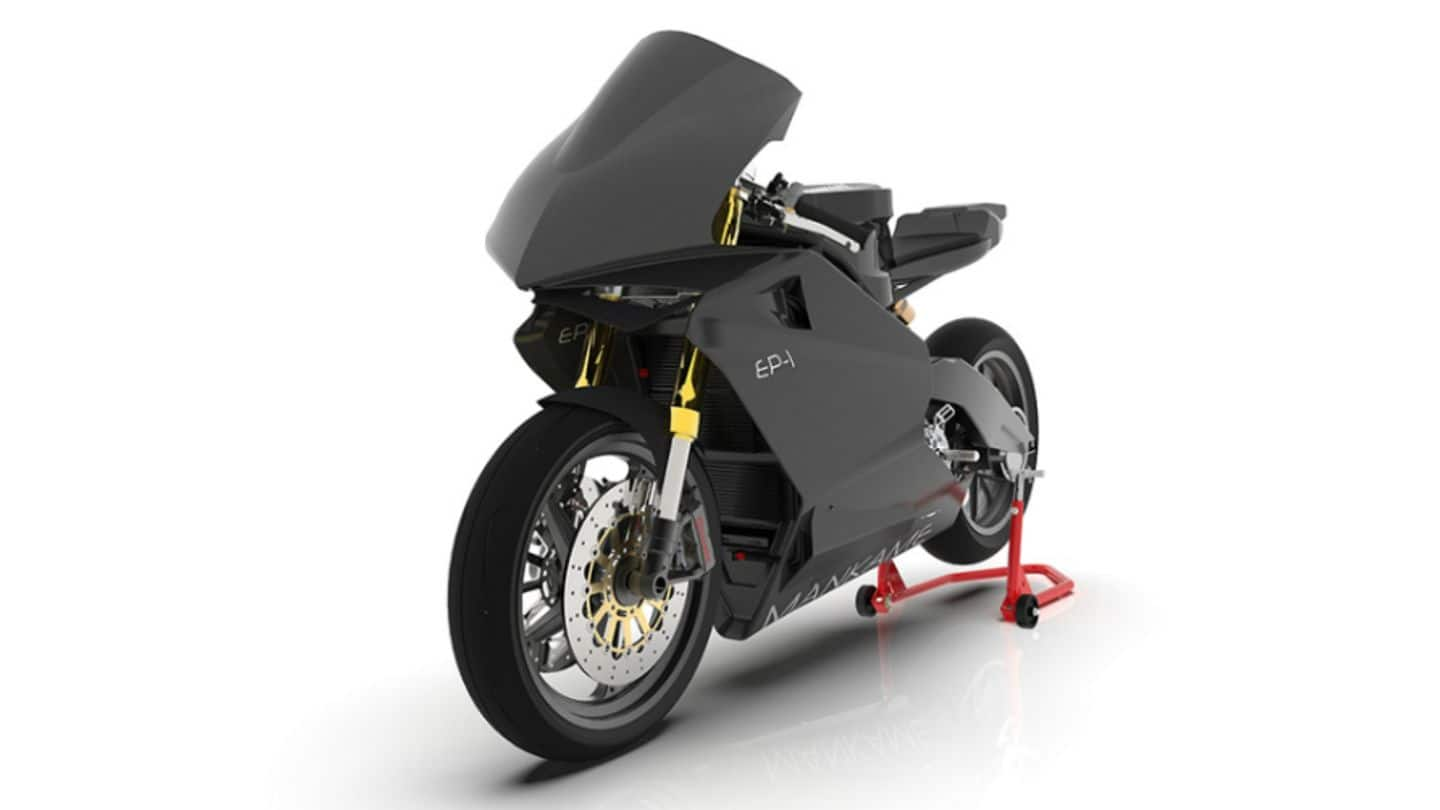
Bengaluru-based start-up to build India's first electric superbike
What's the story
Mankame Automotive, a Bengaluru-based tech start-up, comprising a team of Indian engineers, has started a crowdfunding program to develop India's first electric superbike, the Mankame EP-1.
To be made in India, the Mankame EP-1 will have a claimed range of over 500km on a single charge.
Here's more about it.
Quote
Mankame EP-1 said to have a top speed of 250kmph
"We are a team of engineers, developing what will be India's first electric superbike named the EP-1. The electric superbike will be comparable to 600-650 cc motorbikes with internal combustion engines in terms of performance, with a top speed of 250 kmph," says the company.
Power and Range
Mankame EP-1 to deliver over 500km of range
The EP-1 will get a liquid-cooled 18.4 kWh battery pack which uses a combination of high-density Samsung cells and dedicated Matrix BMS system to monitor and control individual cells.
This, combined with compatible motor-controller, will help the e-bike deliver a total range of 480km (on the highway) on a single charge at 70 kmph and 500-550km range in the city, with active regenerative braking.
Motor and Driving
The e-bike will get a 40KW PMSM motor
The EP-1 gets a 40KW high-performance PMSM motor which, paired with Kevlar reinforced Aramid belt drive system, generates 180Nm torque at the shaft and 432Nm at the rear-wheel.
To be built in Dharwad, Karnataka, the EP-1 will offer three riding modes. In Economy mode, the e-bike can go up to a speed of 120kmph, 180kmph in Sport mode, and 251kmph In Race Mode.
Details
Front and rear disc brakes, Machine Learning-based traction control
The bike will have a fully-adjustable Ohlins upside down fork with 120mm stroke and Showa pressurized rear-shock with 30 mm stroke (Ohlins TTX GP rear-shock optional).
The EP-1 will have a curb weight of 160kg and 190mm ground clearance.
For braking performance, it gets dual 320mm front discs and a 240mm rear-disc with Brembo calipers, dual-channel intelligent ABS and traction control with in-house Machine Learning algorithms.